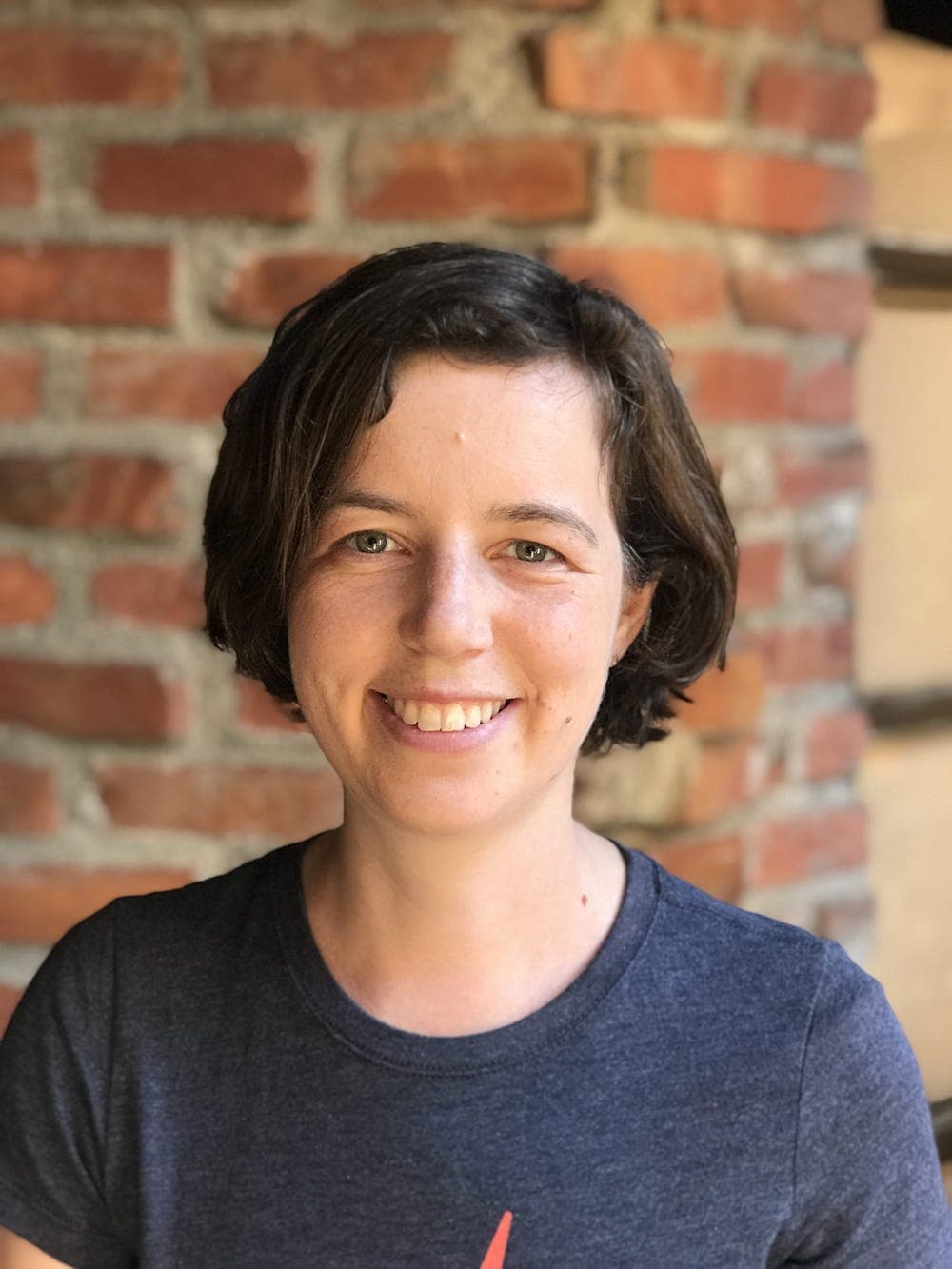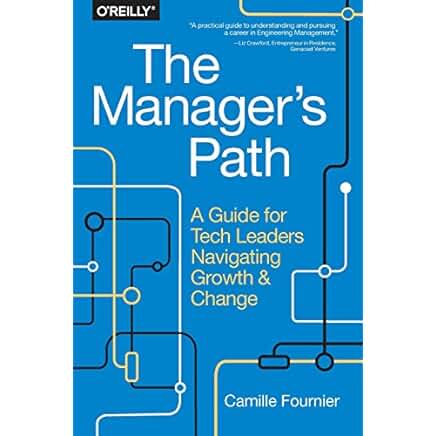
Unveiling the Secrets to New Manager Success
… [Read more](https://www.managersclub.com/unveiling-the-secrets-to-new-manager-success/ "Unveiling the Secrets to New Manager Success")


Location: San Francisco, CA
Current Role: Web Engineering Lead
I received my undergraduate degree in CS from Carnegie Mellon University, after which I spent more than six years as a software engineer at Google, where I worked on internationalization and Gmail frontend. I made the move to Asana because I was ready to learn more and grow as an engineer. I started as a product engineer, and expressed interest in taking on a leadership role, and became a program lead. In that role, I had interns and discovered I really enjoyed the mentorship aspect. I asked to be a manager, which I’ve been for three years. It’s an adjustment from my years of writing code, but the mentorship and coaching aspects are things I am passionate about.
My two biggest ongoing challenges are likely relatable for many managers. The first challenge I face is coaching in general. Coaching is interesting and often very rewarding, but it can also be challenging to coach and teach without just telling a report what I would do or how I would handle a situation. Coming up with new ways to help a report come up with a framework to make their own decisions or come to an answer on their own can require some creativity and problem solving, but seeing the light bulb go off when they come up with the solution on their own makes it worth it.
The other challenge is prioritization. I realize I don’t have time to do everything, and often need to delegate. I think people (myself included) can be reluctant to delegate work because things won’t necessarily be done in the same way I would, but the advantage is often the person taking that project on will have more time to invest. Prioritization has become a big focus for me now that I have two kids. Before being a mom, I could generally work late whenever I needed, but now I am more mindful about where I spend my time so I can get home to my family in the evening.
I can share a little more about our approach to hiring engineers: at Asana, we look for engineering generalists. For example, we use Typescript and React, but we don’t require candidates to know it when they apply – we believe a good engineer will be able to pick it up quickly. We look for engineers who demonstrate a strong desire to learn, communicate and collaborate well, value autonomy and have well-rounded fundamental coding and engineering design skills. Our interview process also looks different. We don’t want candidates to feel stressed about potential “gotcha” questions. We want every candidate who comes into an interview with us to feel prepared and confident, so we even publish an Asana engineering interviewing guide that helps candidates understand what kinds of questions to expect and how they can prepare.
Invest time in building a relationship with your reports. I will admit, the first few 1:1s can feel awkward or like a waste of time – maybe there’s nothing that feels pressing to discuss. However, those first few 1:1s can be some of the most important time you’ll spend with your reports because it’s an opportunity to lay the groundwork of a healthy and productive manager/mentor relationship. In my first 1:1 with a new report, I like to ask what works for them, what they’ve liked and didn’t like and how I can be a resource for them.
It’s also important to be vulnerable – share how you felt when you were in your report’s shoes. I like to share what I struggled with when I first joined and how I overcame or worked through those challenges.
Another piece of advice is if something’s not working, shake it up. Get out of the conference room or the office entirely, go for a walk. When I had my first child, I had this huge new part of my world and I was having trouble relating with my manager who hadn’t had a baby. We then set up time to talk and hang out with my baby, and it really helped him gain perspective of what was going on outside of work for me.
I usually get to the office around 9 am and get caught up on my inbox on Asana and map out my day and top priorities. I eat breakfast (we have an amazing in-house culinary team!) and might have a few 1:1s in the mornings. The remainder of my day is spent working with teams, interviewing candidates and making sure everything within my Area of Responsibility is running smoothly. I usually don’t sit at my desk, but I’ll keep an eye on my inbox on mobile between meetings. You also might find me eating lunch with Gigabyte, our employee resource group for women and gender minorities in engineering, which meets every few weeks. I would also add, my favorite day of the week is Wednesday because Asana has “No Meeting Wednesdays.” It’s a great day to get into a good workflow, tackle big projects and dedicate time to recruiting.
I’m not sure if I would call this a habit, but I’m very good at project management, which I think is why I liked being a program lead. I like to support teams to execute on their projects to bring us all to a common goal. I even do that in my personal life… I recently moved and you could say I was the project manager of that process, making sure everything was where it needed to be, when it needed to be there. Staying focused on the end- goal is key to effective prioritization and managing work.
Of course, I have to say Asana 🙂 I live, breathe and build Asana! The inbox feature is crafted in a way, unlike generic email. The design encourages you to be productive; notifications are highly customizable, so you can opt out of push notifications on status updates that might not be pertinent to your work. Aside from Asana, I use the calendar on my phone to keep me sane. It tells me where I need to be, what my day will look like, what time I have to get work done, and I even use it to remind myself of what happened a few weeks or months before.

One book I’m currently reading is The Manager’s Path. I’m enjoying it so far, and I’ve heard both managers and reports like it because it describes how the relationship works well.
You can reach out via LinkedIn (https://www.linkedin.com/in/bellakazwell/).
This series asks engineering managers to share their experiences with the intent of helping other engineering managers learn and improve. Have someone you want to see featured or questions you think we should ask? Contact me.

… [Read more](https://www.managersclub.com/unveiling-the-secrets-to-new-manager-success/ "Unveiling the Secrets to New Manager Success")

… [Read more](https://www.managersclub.com/accelerating-ai-in-your-team-strategies-for-success/ "Accelerating AI in Your Team: Strategies for Success")

In this video, Rajesh Janakiraman, an engineering manager at Google, shares his insights and experiences on leading business critical projects while ensuring his team remains motivated and doesn’t burn out. Business critical projects can be intense, high visibility deadlines that often shift roadmaps and include executive-level oversight. Building the right team, maintaining communication, and managing expectations around these challenging projects are crucial to preventing burnout and driving results.

Are you on the lookout for a collaborative, engaging community tailored specifically for your role? Look no further! Introducing the Managers Club Discord server dedicated to leadership in engineering. We’re a community of engineering managers, team leads, and CTOs who come together to share experiences, best practices, and insights.

Are you an Engineering Manager curious about gauging your effectiveness and success in your role? In this insightful episode, we dive deep into metrics and stakeholder management with Ivan Bilan, an experienced engineering manager. Discover the core metrics for measuring engineering manager performance in people leadership, product quality, delivery, and self-promotion, and learn the importance of stakeholder management in driving team success. In this video, we will be looking at how to measure success and performance for managers. We’ll be exploring different methods and tools that managers can use to measure their own success, as well as the success of their team. Don’t miss out on these valuable insights and strategies!

In this engaging conversation, experienced technical recruiter Kate Parton shares vital advice and insider tips for candidates seeking job opportunities in the tech industry. She discusses red flags to watch for, navigating compensation discussions, common misconceptions about the recruiting process, and how to make the most of your partnership with a recruiter. Discover the role of social media and the rise of AI in the hiring process. Kate shares valuable tips and advice on making your job search and interview process smoother and more successful. Tune in for an insider’s perspective on the world of recruitment and how to avoid common pitfalls!